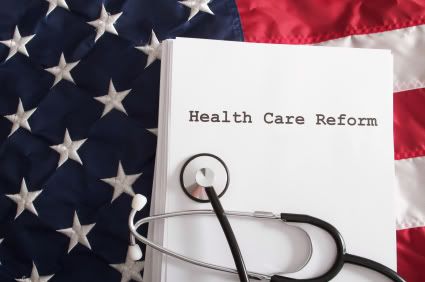This new paper by Jonathan Adler and Michael Cannon details how a "glitch" in ObamaCare's design for statewide exchanges would result in the law's demise.
Long story short, the law requires that "Each state shall…" create an exchange. Except that the federal government can't require that. So, to fix this problem, the law simply says a few lines later that if states refuse to create their own exchange, the federal government will do it for them.
The main purpose of the statewide exchanges is to replace the individual market in health insurance (which will be bigger under ObamaCare, as many employers opt to dump health benefits) and deliver tax credits and subsidies to people up to 400 percent of the federal poverty level. (For perspective, that means a family of 4 with a household income under $92,200 could qualify for "premium assistance").
If everything went according to plan, all 50 states would comply with ObamaCare and create these exchanges. But, many states are standing up to the federal government and refusing to create an exchange. HHS Secretary Kathleen Sebelius estimates that about 15-30 states will refuse, and she will have to operate 15-30 federal exchanges.
And there's a problem with that… the law never authorized the IRS to deliver tax credits and subsidies through the federal exchanges. Nor did it authorize the IRS to collect the $3,000 fine (tax?) on employers who don't offer "affordable" coverage to their employees (who end up going to the exchange for insurance). To remedy this, the IRS issued a rule just a few weeks ago saying basically that while the statute didn't explicitly give them the necessary authority, it is clear that it was Congress' intent that should states opt out of the exchanges, the federally-run exchanges would function just like that state-run exchanges in compliant states.
Not so. As Adler and Cannon explain in detail, Congress never intended for the IRS to have the authority to operate a federally-run exchange like a state-run exchange. Congress wanted to encourage states to create their own exchange by intentionally withholding federal subsidies from noncompliant states. Here's a juicy section where Adler and Cannon destroy any hope the IRS had for proving it was Congress' intent to give them the authority they grabbed in their latest rule:
Section 1401’s language restricting tax credits to states that establish an Exchange under section 1311 is clear and unambiguous. Its inclusion was intentional and purposeful. The remainder of the statute, along with the Act’s legislative history, shows that the plain meaning of Section 1401 reflects Congress’ intent. PPACA’s authors strongly preferred state-run Exchanges over federal Exchanges. The statute repeatedly uses financial incentives to encourage states and others to comply with the Act’s regulatory scheme. Both of PPACA’s antecedent bills contained the same feature of withholding credits from residents of uncooperative states. During congressional consideration, PPACA’s lead author said that a state must establish an Exchange in order for tax credits to become available. PPACA’s authors knew how to express their intent, when held, that Exchanges established by different levels of government should operate similarly, and they did so through HCERA. Similarly, they knew how, when desired, to authorize tax credits in Exchanges established by levels of government other than the states, which they also did through HCERA. While PPACA supporters in the House and Senate closely scrutinized Section 1401, they left intact the provisions restricting eligibility for tax credits to taxpayers purchasing coverage through state-run Exchanges. Finally, even if all of the foregoing evidence demonstrating that section 1401 accurately reflects congressional intent did not exist, PPACA supporters’ actions revealed their intent was to enact a bill that restricted tax credits to state-run Exchanges. Professor Jost argues the provisions restricting tax credits to state-run Exchanges “clearly say what Congress clearly did not mean.” The reality is that the statute clearly says what its authors meant.
The authors of ObamaCare simply counted on state-level leaders to have no backbone. Well, they were wrong.
Furthermore, as Adler and Cannon point out, if the IRS moves forward subsidizing the federal exchanges and taxing employers who violate the employer mandate (resulting in their workers entering the exchange) at $3,000 per worker per year… this creates an opportunity for an affected employer to sue the IRS for acting outside of its authority.
ObamaCare may yet have another day in Court.


